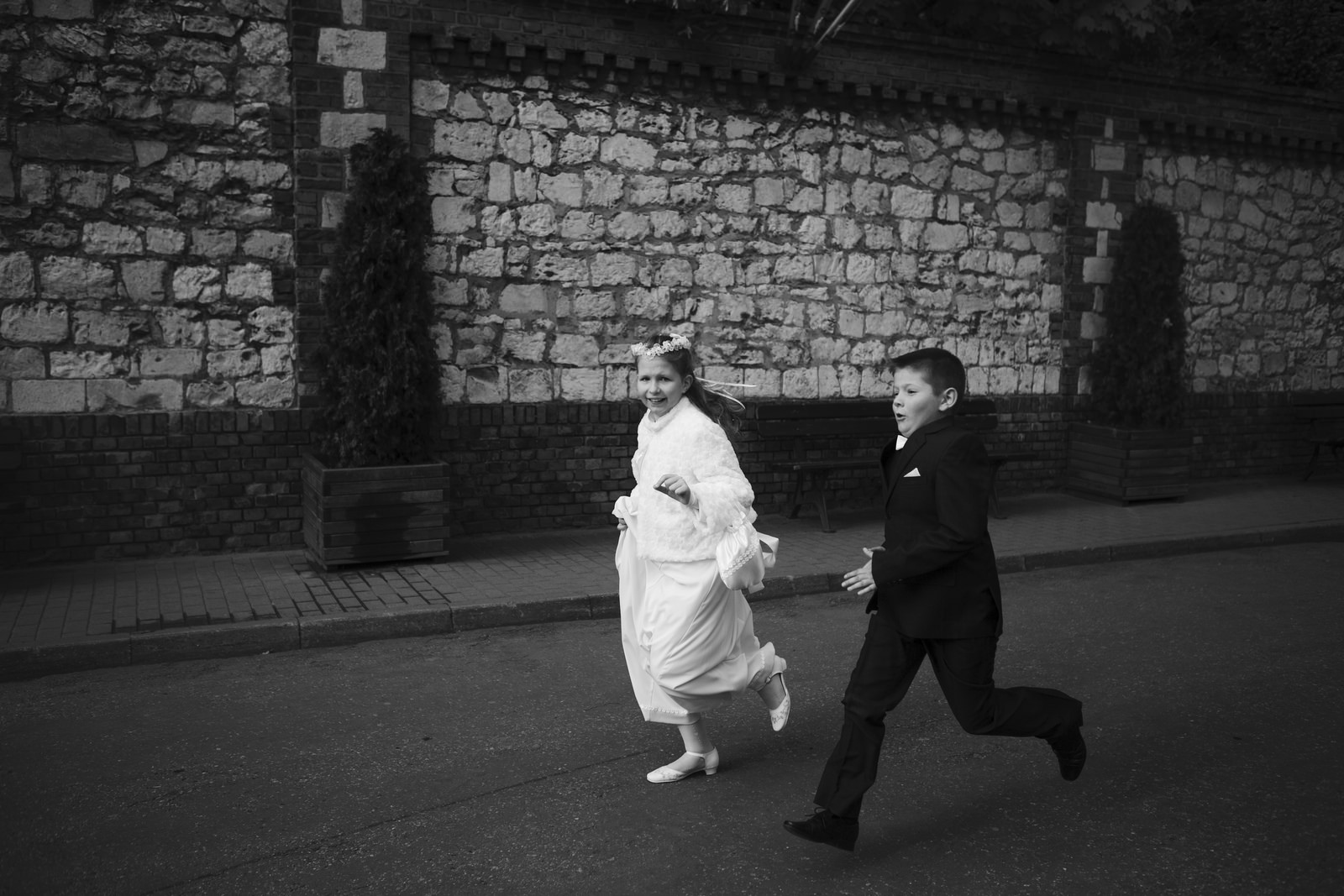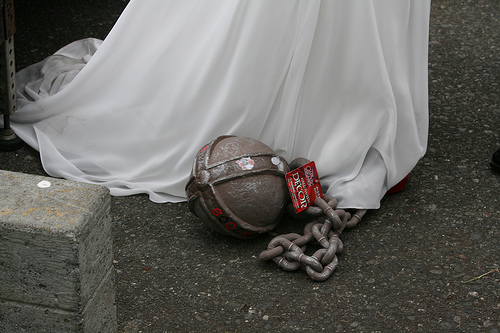
At a plenary session of the Synod of Bishops on Thursday, Fr. Manuel Dorantes recounted the following remarkable story (also here), first told by a bishop in one of the synod’s two Spanish-language discussion groups. According to the bishop, he was celebrating a first communion Mass at a parish in his diocese, and a boy, upon receiving the Host, instead of consuming it broke it into two and gave a piece each to his two parents. His parents were civilly remarried after a divorce and therefore unable to receive communion. At least according to one reporter, some participants at the synod broke into tears on hearing the story.
In a simple way, this boy’s intuition was a sensus fidei—a sense of the faith. He experienced his parents’ inability to fully participate in the Eucharist as a loss, and sensed that his own first participation in the Eucharist—although a joyous occasion—was incomplete without the participation of his parents. In his own way he understood that we are all called to a communion in which the sin that alienates us from one another and from God is overcome. The story illustrates the tragic situations that have made the question of how the church pastorally cares for the divorced and remarried such a central issue at the synod.
But an anonymous blogger at Rorate Caeli—the traditionalist Catholic blog that has been a persistent critic of Pope Francis and the proceedings of both this and last year’s synods—is having none of it. The incident was a “sacrilege,” the Host “treated either as a hostage to emotions or at best as a glorified cracker.” The bishops at the synod who were moved by the story have “truly lost all sense of shame.” Of course, the blogger is concerned that the Host may have been consumed unworthily by the two parents.
The boy, though, is too young to have an ecclesiastical agenda, and as far as we know the gesture was spontaneous. And the boy’s intuition is entirely consistent with the church’s current practice concerning the divorced and remarried. Those of us who—through God’s grace—are able to receive communion should long to welcome those who are excluded from the table, and should experience our own communion in the Body of Christ as in some way incomplete as long as they are alienated from that Body. It is this longing that leads us to encourage our brothers and sisters to repentance and metanoia.
In his 2013 interview with Fr. Antonio Spadaro, S.J., Pope Francis warned of the consequences of separating the church’s moral doctrines from “the heart of the message of Jesus Christ.” By simply dismissing the incident as a sacrilege—presumptuously, since we don’t even know how the parents responded to the child’s gesture—the anonymous blogger’s desire to protect the purity of the sacrament overshadows the very longing for communion the sacrament embodies. He or she even seems satisfied that the mother and father are excluded from communion. This is sheer Pharisaism. I am glad that some bishops at the synod were brought to tears by the story—it shows that they are distraught that a brother or sister in Christ is excluded from communion, and that they can see the depths of the church’s faith in the simple gesture of a child. It shows that the synod indeed may offer “the proclamation of the saving love of God” to today’s families. Come, Holy Spirit, fill the hearts of your faithful and kindle in them the fire of your love.






Many children today have parents that were either married before or are no longer married to each other. Children are growing up with a different sense of family and in many ways teaching older generations how to love across boundaries and households, how to love more than one mother or one father, half sisters and brothers and step family members as well, while still honoring and caring for birth parents. It is not easy but it is possible.
I happened to hear part of a radio show a couple of weeks ago where the daughter of anthropologist Margaret Mead remarked that most marriages today last longer than marriages in Colonial America. In those early days people did not live as long and women very often died in childbirth since there were no antibiotics and medical practices had not yet progressed to what we experience today.
The other comment made on the radio show was that most people have three marriages in their lifetime — sometimes to the same person. The point here was that people change a great deal throughout their lives. Sometimes the changes take people away from one another though there is no intention for that to happen.
In an earlier time, spouses changed due to death and very long life was rare. We have not yet in our church or culture figured out how to honor the persons in these changes. To remain married to someone who is at best a housemate is not life giving for anyone and to pretend that people can undo the changes that make them who they are is unrealistic.
Good second or even third marriages where people are comfortable and loving should be honored. Anyway, that’s what I think — and apparently the little boy was moved to honor his parents as well.